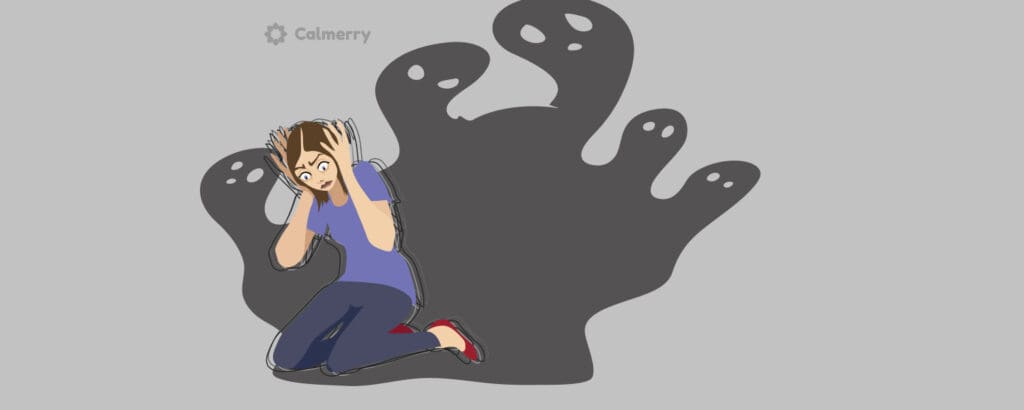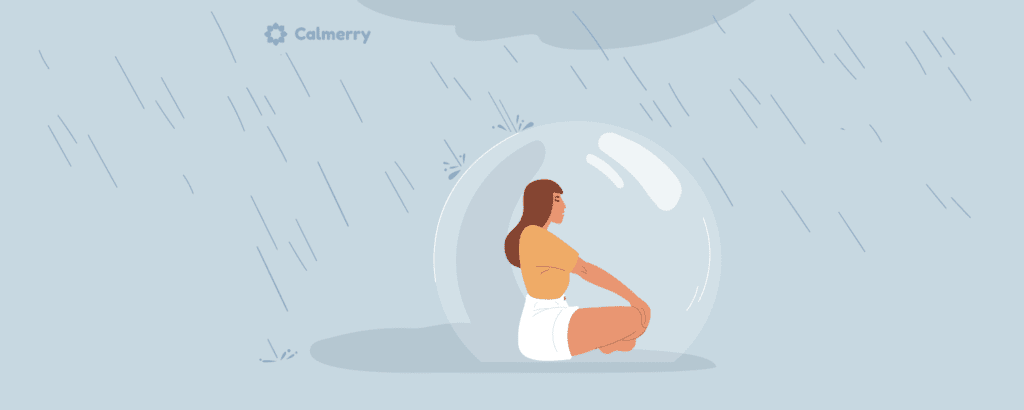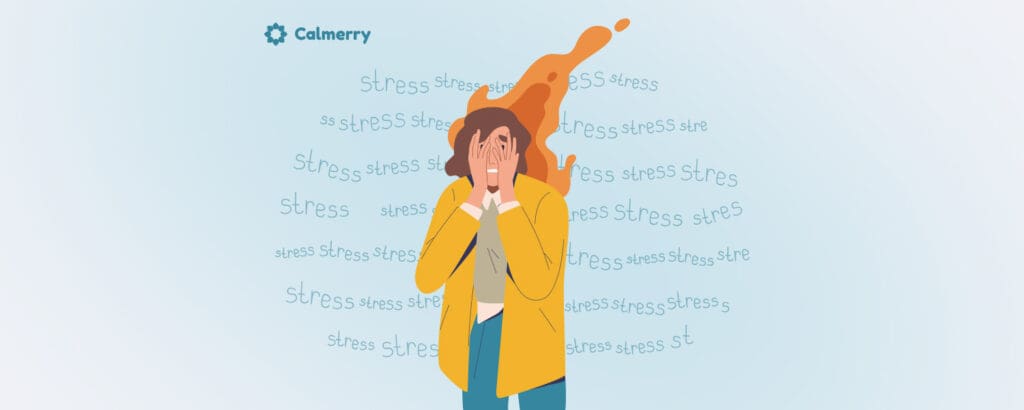What Is Stress, and How to Manage It?

In this article
Stress is a part of life, and it’s not necessarily a bad thing, but we all deal with stressful situations differently, and the way we respond to stress makes a big difference to our overall well-being.
It’s not possible to eliminate stress completely. However, you can learn to change your situation to avoid stressors when it’s possible, or seek anxiety therapy online to help change the way you respond to stressful situations when it’s unavoidable.
What is stress, and how does it affect the body?
The World Health Organization (WHO) defines stress as any type of change that causes physical, emotional, or psychological strain. Stress is your body’s response to anything that requires attention or action.
Stress reaction is quite normal and happens to everyone when we feel under pressure or encounter a threat and feel we don’t have enough resources to successfully cope with it.
The human body has a special survival mechanism that engages in enhancing our ability to survive when we believe we could be in danger. This system is called the fight or flight response or stress response. It’s also often referred to as the fight, flight, or freeze response because some people may freeze when they are too stressed or feel afraid.
Stress response is an emergency mechanism that the body mobilizes to give us an extra edge when we are in danger. It includes both physical and emotional responses to a tense situation that is viewed as challenging or threatening.
When the stress response is turned on, a series of changes occur within your body to give you a burst of energy and help you fight off attackers or effectively run away from them. These changes occur rapidly within milliseconds and affect many systems, organs, and glands.
Stress response cycle
Stress is more than a single-time occurrence; it’s a cycle with several steps. It starts with an external event that removes us from the ground state and ends with a feeling of security that stems from the fact that we have faced danger and are now safe.
Stress response cycle includes three specific stages: alarm, resistance, and exhaustion.
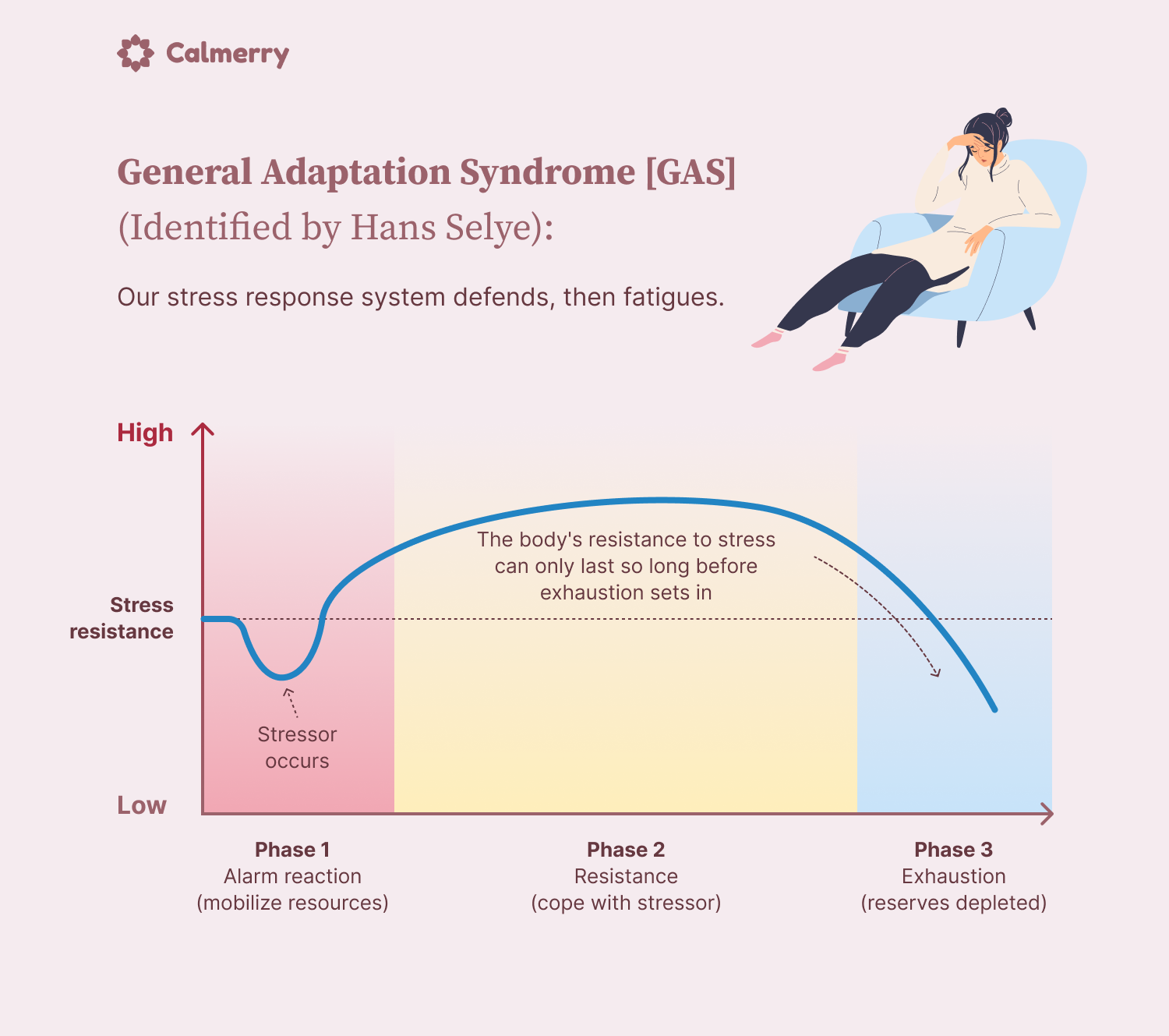
Alarm stage
During the alarm stage, an acute stressor or danger triggers the stress response that causes the release of stress hormones into the bloodstream, including adrenaline and cortisol.
These hormones are supposed to equip the body for emergency action – fight or flee. They bring about specific physiological, psychological, and emotional changes in the body that enhance its ability to deal with a threat.
Adrenaline increases our heart rate, elevates our blood pressure, and boosts energy supplies. The primary stress hormone cortisol increases the level of glucose in the bloodstream and the availability of substances that repair tissues. Cortisol also suppresses body functions that would be nonessential in a fight-or-flight situation. It suppresses the digestive and reproductive systems and growth processes and alters immune system responses.
This complex natural alarm system also communicates with regions in the brain that control mood, fear, and motivation.
Resistance stage
During the resistance stage, the changes caused by the stress response are engaged to give the body an extra “boost” in energy and resources that help deal with a threat. The body uses emergency resources as we are fighting or fleeing.
Exhaustion stage
The exhaustion stage is a recovery stage that begins after the danger has passed. The stress response ends, and the stress hormones are used up or expelled. The body recovers from the stress response changes, returns to normal physiology, and rebuilds its energy stores.
When is stress a problem?
Stress is not considered a mental health problem. Sometimes, stress can be positive because it keeps us alert, motivated, ready to avoid danger, and productive.
A small amount of stress, for example, when you have an important test coming up, can help you work harder to complete tasks, feel more energized, and stay awake longer. Stress response can also help you push through the fear of public speaking when you have to deliver an important speech in front of many people.
Your stress hormones will usually return to normal quickly after the stressful event is over, and there won’t be any lasting effects.
Stress becomes a problem when it’s intense, and stressors continue for a long time without periods of relaxation or relief.
Too much stress when you constantly feel under attack can leave you in a permanent stage of fight or flight, so you always feel overwhelmed or unable to cope. In the long term, this can negatively affect your physical and mental health because the human body can handle stress for a short period of time and isn’t equipped to cope with chronic stress.
When the stress response system is activated for the long term, it leads to overexposure to cortisol and other stress hormones that can disrupt almost all your body’s processes. Then you are at risk of many health problems, including headaches, muscle tension and pain, high blood pressure and stroke, heart attack, insomnia, diabetes, obesity, issues with digestion, burnout, depression, and anxiety.
That’s why it’s very important to learn healthy ways to cope with different life stressors.
Types of stress
Healthcare professionals recognize three types of stress: acute stress, episodic acute stress, and chronic stress. Each type of stress can take a toll on our bodies.
Acute stress
It happens when there is a challenge or after an upsetting or unexpected event and usually lasts for a short period of time. It’s the type of situational stress that we most often encounter in day-to-day life. Examples include getting stuck in traffic, arguing with a partner, and giving a speech.
Episodic acute stress
Episodic acute stress occurs when we frequently experience acute stress and live in a state of tension. It can develop as a result of being overburdened or taking on too much responsibility. People with Type A personality traits are more prone to experience this type of stress.
Chronic stress
Chronic stress is the most harmful and can have a negative impact on your physical and mental health or cause unhealthy behaviors. Chronic stress is constant and persists over an extended period of time, but it’s often ignored.
It can be caused by serious life problems, such as poverty, a poor work environment, having a dysfunctional family or marriage, and physical or emotional abuse.
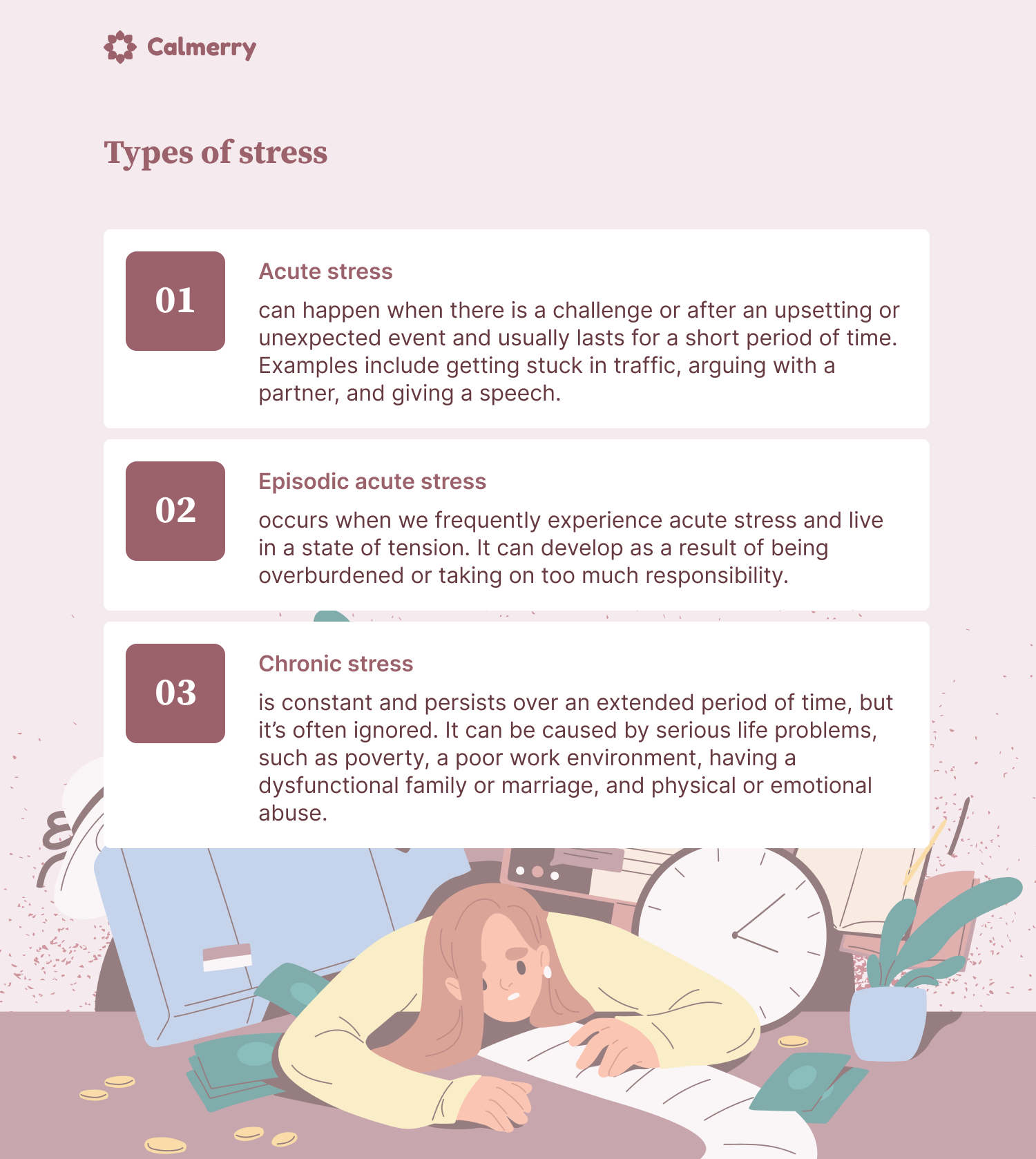
Causes of stress
We all react differently to stressful situations, so what is stressful for one person isn’t necessarily stressful for another, and almost any life event can potentially cause stress. Stress response is often triggered when we experience something new or unexpected, something that threatens our sense of self, when we feel that we have no control over a tough situation or are going through a period of uncertainty.
Our reactions to potentially stressful events are affected by genetic factors and life experiences (people who experienced childhood trauma tend to be particularly vulnerable to stress).
Things that can make us feel stressed are as varied as people are, but some typical stressors that can trigger a stress response include:
- Living with a chronic illness
- Experiencing traumatic events or life-threatening situations
- Abortion or pregnancy loss
- Abusive relationships
- Divorce or separation
- Family problems
- Bereavement
- Living in poverty or being homeless
- Losing a job or having a job you hate
- Being a caregiver of a loved one with a chronic illness
Even positive life changes, such as moving to a bigger house, getting married, becoming a parent, gaining a job promotion, going on holiday, or retirement can be sources of stress.
Many things can make us feel stressed, but whatever the cause, long-term or chronic stress can lead to serious consequences if left unmanaged. Effective stress management starts with identifying the causes of stress. After you’ve found out what your stressors are, you can take steps to reduce or avoid them.
You can also adopt healthy lifestyle habits and learn effective stress management strategies to reduce the impact of stressful events on you.
What are the signs of stress?
Stress can manifest in many different ways, affecting our emotions, body, and how we behave. Sometimes, we might be able to tell right away when we are stressed, but at other times, we might keep going without recognizing the stress symptoms. And keep in mind that the symptoms of stress in men may slightly differ from those in women because of different biological, social, and psychological reasons.
So what does stress feel like? There are certain emotional, physical, psychological, and behavioral signs you can watch for if you think that stress might be affecting you:
- Emotional signs such as being angry, irritated, impatient, moody, frustrated, overwhelmed, anxious, feeling guilty, lonely, insecure, unable to enjoy yourself.
- Physical signs such as difficulty breathing, high blood pressure, changes in weight, fatigue, sleep problems, frequent colds or infections, headaches, and changes in the menstrual cycle.
- Psychological signs such as lack of motivation, difficulty concentrating, trouble remembering, intense thinking, racing thoughts, expecting the worst, forgetfulness.
- Behavioral signs such as poor self-care, eating too much or too little, not having time for the things you enjoy, withdrawing from people around you, gambling, shopping too much, or relying on drugs and alcohol to cope.
What is the difference between stress and anxiety?
Stress can sometimes be mistaken for anxiety, but although they are both responses that have a nearly identical set of physical and emotional symptoms, they are different things.
Stress is the physical or mental response to an external cause – a real-life stressor that may happen one time or repeatedly over a long time. Stress may go away once the threat or the challenging situation resolves.
And as to anxiety, it’s your body’s reaction to stress. Anxiety can persist even if the original stressor is gone and can occur even if there’s no current threat when you just imagine that something harmful might happen. That’s because the brain interprets your thoughts as reality, and your body responds to what your mind thinks.
Both stress and anxiety are a natural part of the body’s reaction to danger, and they are normal, although sometimes, they can overwhelm people. Both mild stress and mild anxiety can be managed using similar coping mechanisms such as good sleep hygiene, healthy diet, physical activity, and relaxation techniques.
How to manage stress and build resilience
You can’t avoid stress, but you don’t have to let stress control your life – it’s possible to fight back and build resilience. Here are some tips you can try to help you become resilient to stress.
Although trying these strategies won’t make all the stress in your life disappear, they could make it easier for you to get through stressful situations. Learning healthy ways to manage stress will give you peace of mind and better self-control. You’ll feel less stressed and anxious and will enjoy a better quality of life and better relationships.
Look after your physical health
Eating a healthy diet, staying physically active, and getting enough sleep can make stress easier to manage. Even small lifestyle changes can make a big difference in how you feel physically and mentally.
Balanced diet
A balanced diet containing healthy carbohydrates, fats, proteins, minerals, and vitamins is important because it can help your body manage physiological changes caused by stress, repair damaged cells, and support the healthy immune system. Balanced healthful meals provide the extra energy you need to cope with stressful events and prevent weight gain.
Regular exercise
Regular exercise will help to reduce the levels of stress hormones like cortisol, lower blood pressure, and improve many symptoms associated with stress and other mental health issues. For example, walking, dancing, running, swimming, and other aerobic exercises increase breathing and heart rate so that more oxygen can reach cells throughout the body, and that helps reduce muscle tension.
Physical activity like yoga or Tai Chi distracts you from negative thoughts and emotions, taking your mind off your problems. Exercise also increases endorphins (they are your body’s “feel-good” chemicals) and gives your mood a natural boost.
Getting enough rest
A full night’s sleep is of utmost importance for functioning properly and staying healthy. Good night’s sleep repairs, relaxes, and rejuvenates our body and reduces the effect of stress, so you should aim for 7-8 hours of sleep each night.
Learn to manage your time
It’s easy to get stressed when you’re juggling a lot of responsibilities, so you need to create a better work-life balance and manage your time wisely. It’s important to avoid over-committing yourself, and changing the way you organize your time can help you feel more in control.
Don’t schedule too many tasks back to back in an attempt to handle multiple things in one day. You should organize and prioritize what you need to accomplish at home and work and remove tasks that aren’t necessary.
And you don’t have to do everything by yourself when it comes to household chores. Although it may seem easier, there should be a balance in responsibilities. You can delegate specific tasks to each member of your family to reduce your workload.
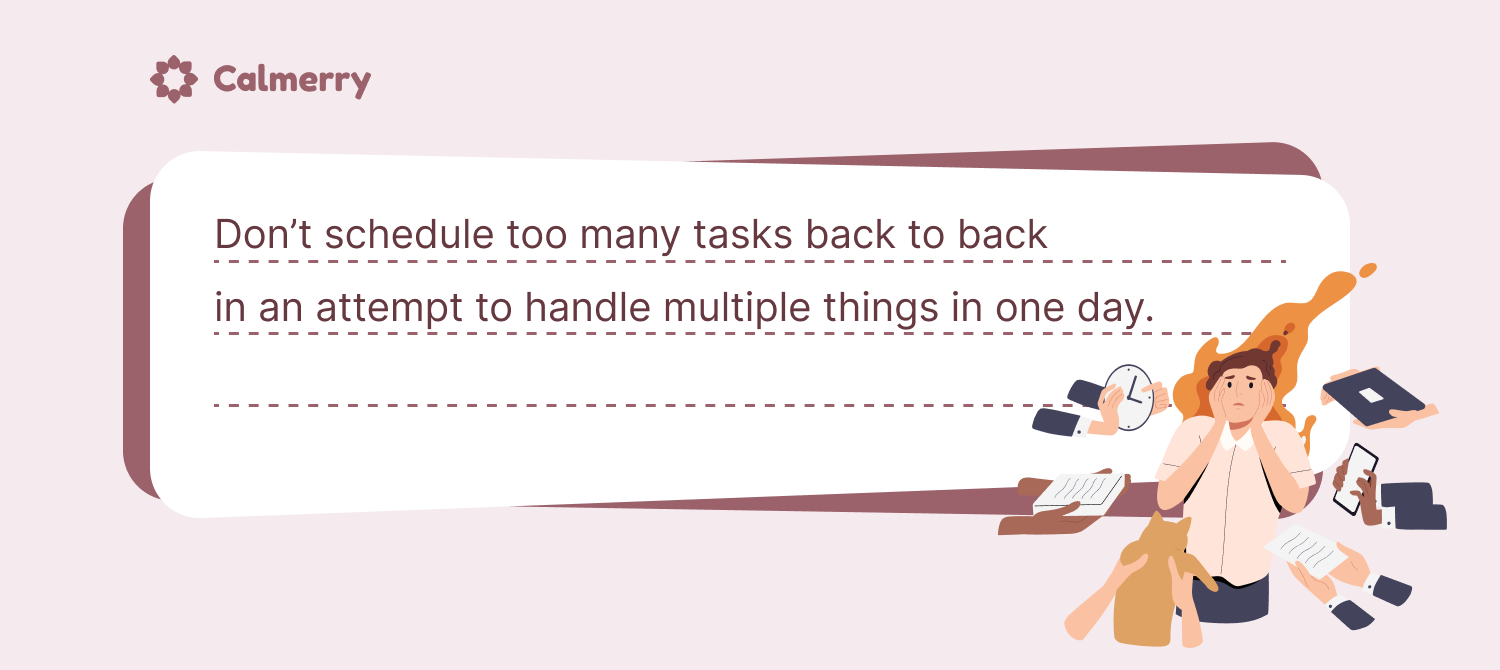
Make time for hobbies
Make time for activities you enjoy, such as listening to music, reading a good book, hiking in nature, or watching your favorite movie at least once a week. It could help distract you from a stressful situation.
You can also do something creative like knitting, drawing, writing, cooking, or gardening. It can help your body recover from stressful events and boost your energy levels.
Try relaxation techniques
Deep breathing, guided imagery, progressive muscle relaxation, massage, qi gong, yoga, and other relaxation techniques are also scientifically proven to reduce and prevent stress. They activate your body’s natural relaxation response and decrease the effects of stress on your mind and body.
For example, fast, shallow breathing and erratic unhelpful thoughts occur in response to stress. Relaxation techniques that focus on breathing can reduce muscular tension, slow down the heart rate, calm your mind, and promote a relaxation response. This is a state of deep rest that brings your body and mind back into balance.
It doesn’t matter which relaxation technique you choose. Just remember that relaxation techniques are skills that need practice. The main thing is that you should try to practice relaxation regularly for at least 20 minutes a day to reap its great benefits.
With regular practice, you can become more aware of muscle tension and other physical sensations of stress. You’ll get a better understanding of what the stress response feels like. Then you’ll be able to make a conscious effort to practice a relaxation technique of your choice the moment you start to feel stress symptoms. This way, you can prevent stress from spiraling out of control and improve your overall health and well-being.
Be mindful
Mindfulness meditation is an effective way to calm your mind, besides it’s free, and you can practice it anywhere, anytime. But mindfulness isn’t just something that you practice for 20 minutes each day – learning to be present in the moment can also be a way of life.
You can become more mindful in your everyday life by practicing mindful eating and paying attention to the way you’re feeling, listening carefully, and learning to respond when you’re interacting with your partner, children, friends, or colleagues.
Gardening, cleaning the house, washing dishes, listening to music, walking, driving, and many other activities can be opportunities to practice mindfulness throughout the day if you perform them with a heightened sense of awareness, tuning into physical sensations and focusing on what you’re doing.
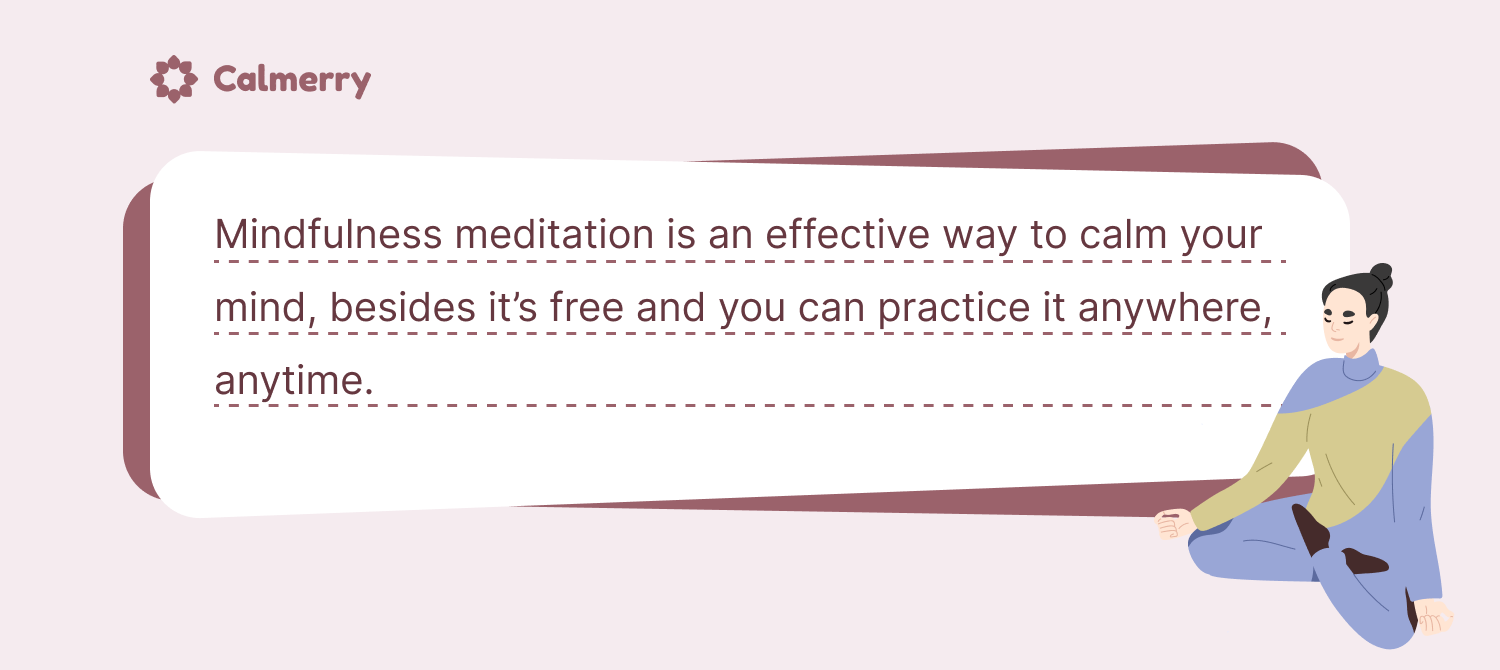
Be kind to yourself
Don’t be too hard on yourself because no one is perfect and look for positive things in your life. Keep a journal to write down your accomplishments and things that make you feel grateful, acknowledging good parts of your day or life. That will help you stay positive and keep things in perspective.
Accept that you can’t control everything, for example, other people’s behavior or some events. You should find ways to let go of worry about difficult situations that you can’t change and focus your attention on things you can do now. Use your problem-solving skills to create a proactive plan for a change.
Build your support network
It’s crucial to be socially connected and foster healthy relationships so you can get support from people who make you calm and help with practical things. Your family members, friends, colleagues, or neighbors can be good listeners. Sharing your feelings and concerns with them may help you “let off steam” and feel less isolated. Besides, other people who care about you may be able to suggest some unexpected, helpful solutions to the stressor that work.
Wrapping up
Stress is inevitable, and if you experience it short-term, it can even help you function and motivate you to cope with life challenges. But ongoing stress can have a negative impact on your physical and mental health, so you can’t afford to let it take over your life.
You can’t avoid all sources of stress in your daily life, but you can develop healthier ways of responding to them in challenging situations. You should learn healthy stress management strategies like practicing self-care, using relaxation techniques, keeping a gratitude journal, taking time for hobbies, and avoiding unhealthy ways of managing stress, such as using alcohol or drugs, smoking or overeating.
And if you feel that stress interferes with your daily life, becomes severe, or doesn’t go away, consider talking with a licensed mental health professional who can help you develop effective strategies to cope.
Online therapy is a good alternative to traditional face-to-face sessions that allows you to get help from the comfort of your own home.
Calmerry therapists can provide you with the necessary support and guidance and help you learn effective coping skills and be equipped to face the challenges of life.
online therapy
live video session

